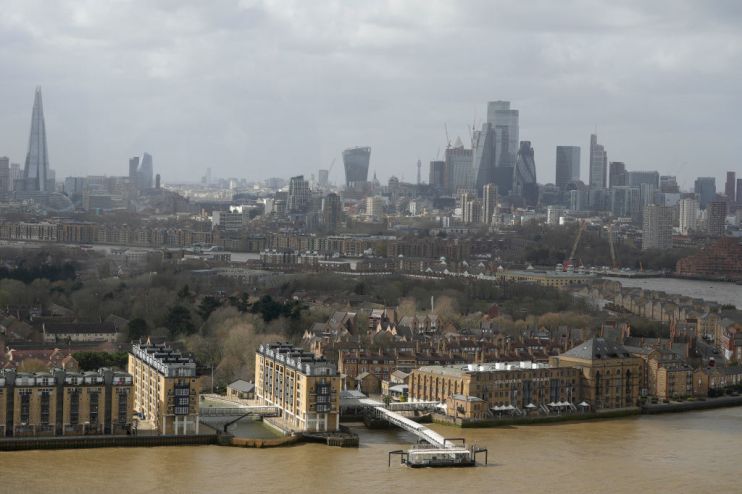Bank of England ditches any threat of recession in biggest GDP upgrade since 1997 independence

Any threat of a recession in Britain this year and over the medium term has today been scrapped by the Bank of England in what was the largest upgrade to the central bank’s GDP projections since it was made independent in 1997.
The UK economy is now tipped to broadly flatline this year and start growing in the final six months, leading the Bank to raise its 2023 GDP projections 0.75 percentage points compared to February.
Output growth was also hiked to 0.75 per cent next year from a 0.25 per cent contraction and to 0.75 per cent from 0.25 per cent in 2025.
While still pretty bleak, the Bank’s forecasts now project no quarter of negative growth over the next three years, a sharp turnaround from the fifteen straight months of contraction it outlined in November.
“The improved outlook reflects stronger global growth, lower energy prices, the fiscal support in the Spring Budget, and the possibility that a tight labour market leads to lower precautionary saving by households,” the Bank said.
Inflation though is poised to be higher and stick around for longer than the Bank previously expected, mainly due to surging food prices and accelerating wages.
It reckoned back in February the rate of price increases would slim to 3.9 per cent by the end of the year. That figure has been bumped up to around 5.2 per cent.
“Almost all of the upside news in CPI inflation data since the February Report has been accounted for by developments in food and other goods,” the central bank said in its monetary policy report.
Inflation doesn’t return to near the Bank’s two per cent target until the start of 2025 and then remains below that level, possibly opening the door to Governor Andrew Bailey and co cutting rates toward the back end of next year to stimulate demand.
Inflation in March reached 10.1 per cent in March, shocking experts, despite the Bank raising interest rates 415 basis points at that time, the fastest tightening cycle since the 1980s.
Today it backed a twelfth straight increase, lifting borrowing costs 25 basis points to 4.5 per cent, their highest level since October 2008.
Unemployment has also been slashed in response to the much better-than-feared GDP outlook, with the rate staying below four per cent for the whole of this year and peaking at 4.54 per cent in the middle of 2026.
A sharp reduction in energy bills, compounded by decent pay growth, means UK households are poised to dodge the severe living standards shock the Bank thought was coming down the road.